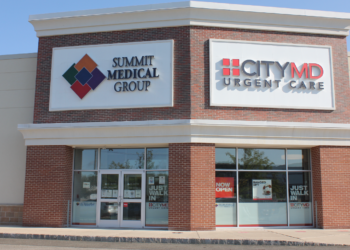Keynote speaker John C. Cushman III had an opening request for some 500 guests at the recent annual dinner of The Business Council of Westchester.
“All I ask is, do not shoot the messenger,” he said.
Armed with a slew of statistics, the chairman of Cushman & Wakefield Inc. brought to his audience at the Hilton Rye Town a sobering message not unusual among economists and business forecasters these days: The economic recovery will be “very slow.”
“Perhaps the best news is that we have come to accept the bad news about the economy,” he said.
With $6 trillion in home equity evaporated in the recession, “The housing market will remain a drag on this economy for some time to come,” unlike past recoveries, said Cushman.
With debt-to-income ratios still far above normal, “We are in the beginning of a deleveraging cycle that is going to take us years to complete,” he said.
One in seven, or 44 million, Americans now live in poverty, a 15-year high, he noted. More than 42 percent of the nation”™s jobless have been out of work for more than six months.
For college graduates entering the work force, “Our brightest and best cannot find that first job,” Cushman said. “In denying that opportunity to youths, we are eating our own seed corn.”
Consumers, who represent two-thirds of the economy, this fall show a lower confidence level in the economy not seen since February. “We cannot and will not have true recovery until we have consumer confidence and job growth,” Cushman said. Without consumer activity, any recovery will be “tepid at best.”
Fannie Mae and Freddie Mac backed 90 percent of home mortgage loans in 2009, Cushman noted. “At the local level, most banks are still holding their breaths and they”™re still not lending,” he said. Since the collapse of Washington Mutual two years ago, 279 banks have failed. The Federal Deposit Insurance Corp. roster of at-risk banks recently increased to 829 institutions, Cushman said.
Recovery will be slow too in the commercial real estate market. With $1.4 trillion in real estate loans due between now and 2014, “It”™s going to be a race to refinance or face a new wave of defaults,” Cushman said. The better lenders will be creative and flexible with borrowers and accept new equity to keep loans performing.
Finding some encouraging signs, Cushman noted a recent uptick in job numbers nationwide, led by New York City. Though 8.4 million lost jobs still must be recovered, “We”™re finally headed in the right direction.” Corporate balance sheets are strong and stock issues “robust” as investors return to the market.
“We have reason for both optimism and continued watchfulness,” Cushman said. “The economy will continue to muddle forward in the near term as the consumer finds a balance between spending and saving.”
In the middle term, the economy must find the “least disruptive exit possible” from the federal stimulus funding that has sustained it. “That”™s going to be tricky,” he said.
Cushman said his biggest concern is the long term. As manufacturing continues to fade in the service economy, the U.S. has failed to redevelop its work force, creating a huge disparity in education. “At the high end, we still produce too many financial engineers and too few physical ones,” he said.
“We neglected to build a bridge to the future,” Cushman said. “We must continue to build that bridge despite our horrible public finances” and federal, state and local governments ailing with deficits and legislative dysfunction.
Government, said Cushman, “needs to get out of the way so business can get back to providing jobs.”



















